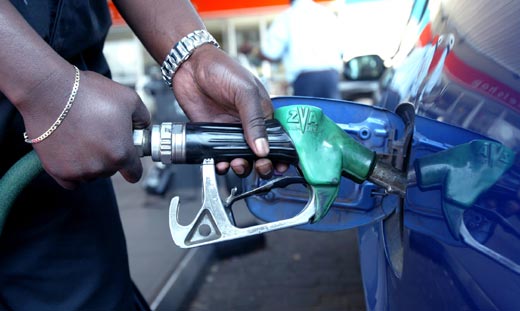
BY MISHMA CHAKANYUKA
PetroTrade, a government-owned fuel and logistics company, is seeking ways to grow its market share beyond 10% with plans to extend operations to rural areas.
Godfrey Ncube, the company’s acting CEO, told Standardbusiness Petrotrade’s market share was too low and there were plans to aggressively grow its footprint.
“The future plan is to grow the company. We want to be the company that supplies fuel to different parts of the country,” he said.
“Our aim is that probably in the next three or so years, Petrotrade is there in every district in Zimbabwe.
“We want to ensure that we are operating in every district, even in the rural areas.
“Currently we have four projects that are running up at the same time.
“We have a project in Mabvuku (Harare) that is almost finished, we have got one at Warren Park (Harare), we have got a project in Bindura that is about 35% complete, we also have a project in Masvingo that is running at about 30% or so complete, we also have a project that is about to start at Epworth (Harare).”
- Chamisa under fire over US$120K donation
- Mavhunga puts DeMbare into Chibuku quarterfinals
- Pension funds bet on Cabora Bassa oilfields
- Councils defy govt fire tender directive
Keep Reading
Ncube revealed that demand for fuel was currently depressed owing to the steep price increases since the beginning of the year. Petrol is now retailing for $9,86 a litre while diesel is pegged at $10,25.
Prices in areas outside Harare, especially in Matabeleland, are much higher due to the Zimbabwe Energy Regulatory Authority’s zonal pricing system.
“The queues they are shorter maybe because the prices of fuel have gone up, but as of now the supply has been okay,” Ncube added.
Zimbabwe has been facing an acute shortage of fuel since October last year due to foreign currency shortages.
As such, government recently took a move to liberalise fuel prices by allowing operators to make direct imports for the precious liquid in order to increase supply.
Ncube said Petrotrade was sourcing foreign currency from the interbank market and from the Reserve Bank of Zimbabwe (RBZ) to import fuel.
“We are sourcing foreign currency through the interbank market although the foreign currency allocation for fuel is a bit lower,” he said.
“We are also being assisted by the RBZ in sourcing foreign currency, specifically for fuel.”
Fuel prices have gone up at least 13 times since January.











